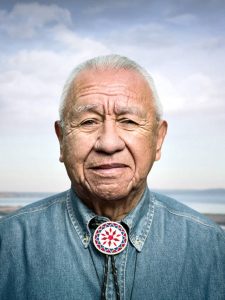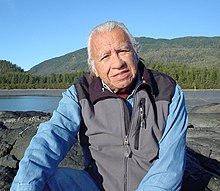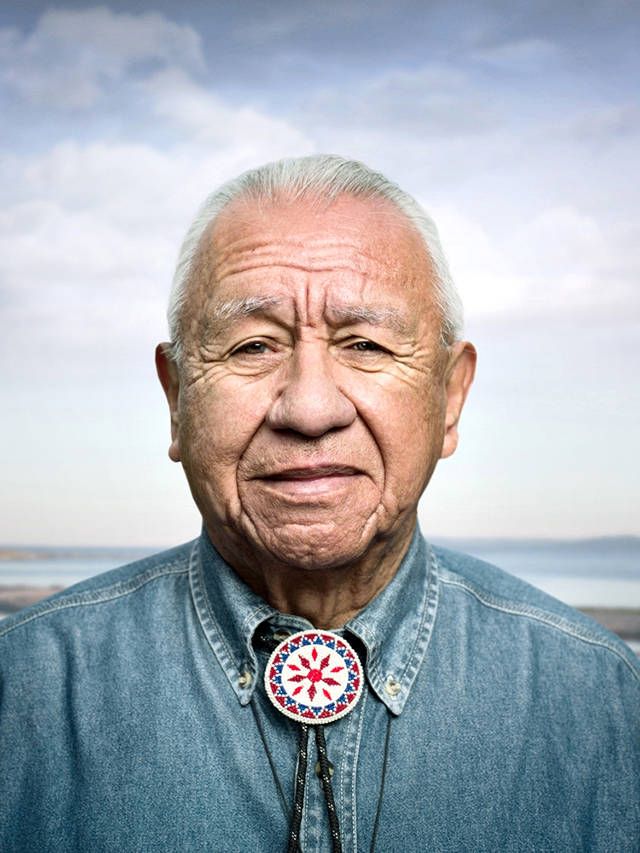On March 9th of every year, Northwest Treaty Tribes, schools and numerous agencies and organizations (including the Washington Forest Protection Association) throughout Washington state celebrate Billy Frank Jr. Day. The ninth day in March, Frank’s birthday, is a day to recognize and honor a man who left an indelible mark in the state’s history and beyond.

For those who had an opportunity to work with him, Frank was a trusted voice in natural resource management. For those fortunate enough to call him friend or mentor, he was even more esteemed.
“Billy Frank Jr. is possibly in the long sweep of history the greatest man who was born in Washington,” said House Minority Leader JT Wilcox (R-Yelm) during March 9, 2021 floor remarks on a bill placing a statue of Frank in the national statuary hall.
Born and raised on the Nisqually River, Frank was a civil rights leader who championed tribal fishing rights in the 1960s and 1970s – an era labeled the “fish wars.” Modeling peaceful approaches like the sit-ins of the civil rights movement, Frank organized a series of “fish-in” protests to preserve indigenous fishing rights. Frank become one of the most recognizable civil rights leaders of that time, garnering support from Hollywood celebrities like Marlon Brando and civic organizations like the N.A.A.C.P. and America Civil Liberties Union.
Decades after the “fish wars,” Frank was critical in brokering the Timber/Fish/Wildlife Agreement (TFW), an agreement between tribes, state agencies, environmental groups and the timber industry that would provide a framework to protect the state’s fish, wildlife and other resources while balancing the needs of working forests and the state’s timber industry.
“Among Billy Frank Jr.’s lasting legacies was his ability to bring people representing disparate interests to the table in collaboration,” said Jason Spadaro, Washington Forest Protection Association Executive Director. “The Timber/Fish/Wildlife Agreement is an example of that with the tribes, forestland owners, environmentalists, state agencies and other interested stakeholders coming together to resolve natural resource issues.”
TFW received unanimous approval from the state Legislature and the Forest Practices Board. It set the stage for cooperative natural resource management based on science and has since become a model for Washington’s forest landowners and other interested stakeholders to resolve natural resource issues.

Frank was instrumental in TFW, Spadaro said, because he recognized the importance of including all stakeholders in the policymaking that affected them. It was Frank’s belief that collaboration and better understanding lead to lasting solutions that helped forge a path of cooperation.
Said House Republican Leader Wilcox:
“Billy grew up along the Nisqually River, down on the delta about 10 miles downstream from where I grew up. He was involved in the struggles in the 60s and 70s to stand up for treaty rights. He talks in his autobiography and interviews about the times he was arrested. He called himself the ‘getting arrested guy’ and the times he was beat up. He wasn’t a hooligan. He wasn’t an outlaw. He was standing up for rights that had been granted in an agreement in the 1850s and he was vindicated by the Supreme Court. But that is not why he’s great. The things he endured and the victories he won. He’s a great man because after all that he went through – and I think it was very hard, harder than any of us can imagine – he forgave. He didn’t get bitter. He forgave everybody. He never gave up his struggle and he moved on to expand it. He was never bitter.”
